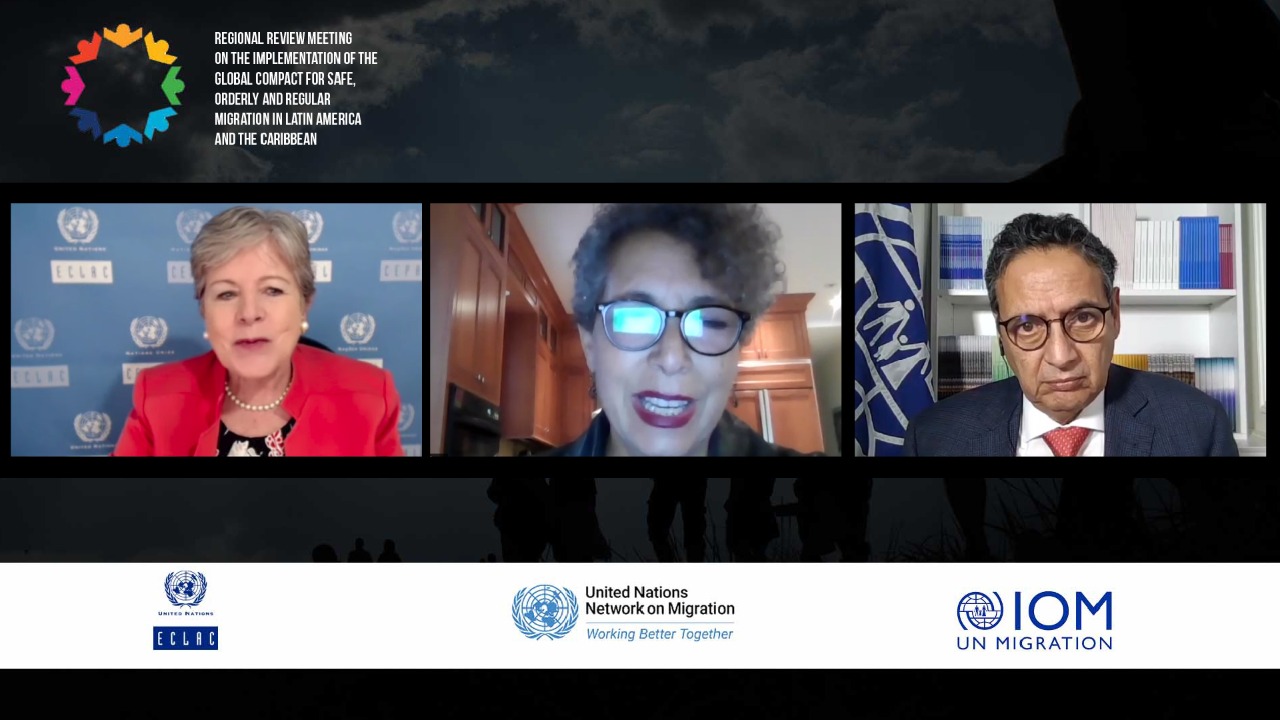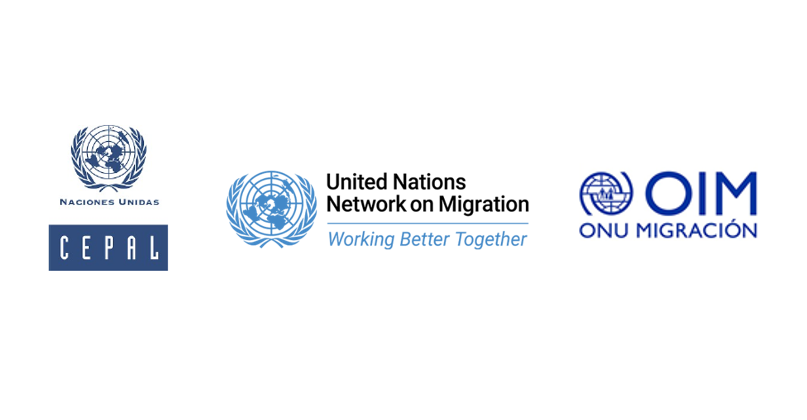Countries of Latin America and the Caribbean Affirm their Commitment to Safe, Orderly and Regular Migration
Work area(s)
The Regional review meeting on implementation of the Global Compact concluded today with a call to work so that migration can be an option rather than an obligation.

Government representatives from Latin America and the Caribbean committed themselves today to implementing the Global Compact for Safe, Orderly and Regular Migration and ensuring that migration be an option, rather than an obligation, at the closing session of the regional review meeting on implementation of the Compact, which was co-organized by the International Organization for Migration (IOM), in its capacity as Coordinator of the United Nations Network on Migration, and the Economic Commission for Latin America and the Caribbean (ECLAC).
Participants in this high-level meeting – which took place virtually on April 26-28 – included the agencies, funds and programs that make up the Regional Network in Latin America and the Caribbean, along with ministers, deputy ministers and other senior authorities from 29 of ECLAC’s Member States and three associate members, as well as representatives of intergovernmental organizations, the United Nations System, and of civil society and other stakeholders.
The event’s closing session was led by Alicia Bárcena, Executive Secretary of ECLAC; Michele Klein Solomon, Regional Director for Central America, North America and the Caribbean of IOM; and Marcelo Pisani, Regional Director for South America of IOM.
In her remarks, ECLAC’s highest authority highlighted the significant progress on the Global Compact’s implementation presented by governments of the region, particularly considering the context of the health crisis prompted by the COVID-19 pandemic, and she pointed up the countries’ strong commitment to the Compact’s 23 objectives.
She added that ECLAC considers migration to be an opportunity for people, families, communities and countries, as long as it arises from a voluntary and informed choice.
“For us, safe migration is when migrant persons are bearers of rights throughout the migratory cycle; orderly migration occurs only if it is exercised in an informed and free fashion, not forced or compelled by coercive factors, or as the only option; migration is regular when, in addition to the previous points, migrants are able to access some facilitating channels that serve to minimize adversity, especially for the most vulnerable groups,” she stated.
In her speech, the Executive Secretary of the United Nations regional commission called for embracing the notions of the need for evidence in policymaking, of the imperative of protecting migrant persons at all stages of the migratory cycle, and of the creation of solid partnerships for migratory governance.
Furthermore, she reiterated ECLAC’s unwavering and solemn commitment to the Global Compact for Migration and committed to applying the Commission’s technical expertise to achieve its objectives, in accordance with the needs of each country.
“Our commitment is with people, their social inclusion, and development with equality so that migration can be an option and not an obligation,” she stressed.
Meanwhile, Michele Klein Solomon, Regional Director for Central America, North America and the Caribbean of IOM, urged for working jointly in an effective way, mobilizing migration for sustainable development, protecting and helping migrants, and ensuring that no one is left behind.
“Latin America and the Caribbean faces various migratory challenges but none is insurmountable, especially if we remain true to the framework offered by the Global Compact and its call to further our collective efforts in pursuit of safe, orderly and regular migration,” she expressed.
In his remarks, Marcelo Pisani, Regional Director for South America of IOM, called for creating permanent mechanisms for dialogue that would foster the involvement of civil society organizations in the Global Compact’s follow-up, implementation and review.
He also highlighted that the Global Compact for Migration is a space where United Nations agencies coordinate and create synergies, thereby contributing to the fulfillment of the 2030 Agenda for Sustainable Development.
The results of the Regional review meeting on the implementation of the Global Compact for Safe, Orderly and Regular Migration will serve as an important contribution for preparing the report that Latin America and the Caribbean will present to the International Migration Review Forum, which is due to take place in 2022.
Related content

Countries Reiterate Commitment to Implementing the Global Compact and Urge for Viewing Migration as a Contribution to Democracy, Diversity and Sustainable Development
The Regional review meeting on the implementation of the Global Compact for Safe, Orderly and Regular Migration was inaugurated today.
Related event

Regional review meeting on the implementation of the Global Compact for Safe, Orderly and Regular Migration
The purpose of the Meeting is to provide a common platform where Member States and all other stakeholders can contribute to the debate on the challenges, progress and needs in the implementation of…
Type
Country(ies)
- Latin America and the Caribbean